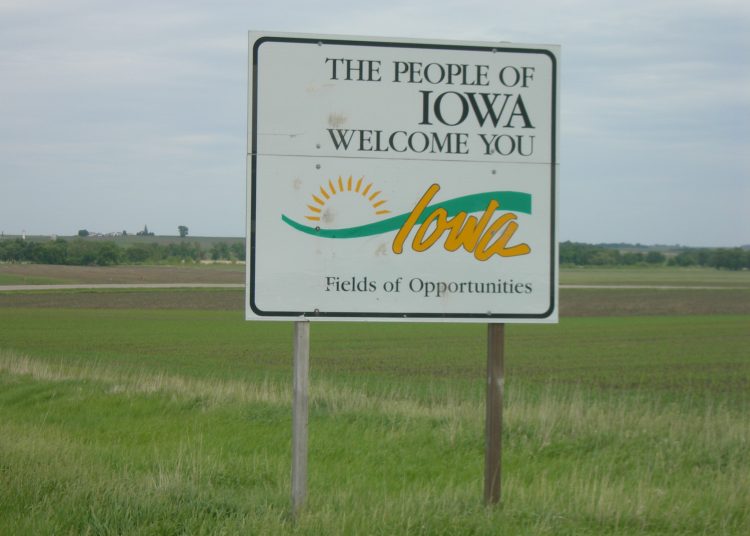(The Center Square) – Iowa has made a slight recovery in its economic competitiveness compared with other states, the American Legislative Exchange Council reported Monday.
ALEC’s Rich States, Poor States: ALEC-Laffer State Economic Competitiveness Index compares its forecast of states across 15 economic policy variables.
Iowa ranked 32nd for economic outlook, reversing its downward trend since the 2019 report, in which it placed 25th in the nation. It ranked 27th in 2020 and 33rd nationally in 2021. It had placed 29th overall in 2016, 2017 and 2018.
Iowa ranked in the top 10 for recently legislated tax changes (2020 & 2021, per $1,000 of personal income decrease of $2.21, fourth in the nation overall) and debt service as a share of tax revenue (3.79 percent, fourth in the nation overall).
Not raising the minimum wage for Iowans above the federal floor ($7.25) and providing a right-to-work economy gave Iowa two first place rankings, but levying estate/inheritance tax gave it a 50th place ranking.
It also suffered in the rankings since it has the eighth highest number of full-time public employees per 10,000 people (601.4). It was docked for property tax burden ($35.41 per $1,000 of personal income, 38th overall) personal income tax progressivity ($13.28 change in tax liability per $1,000 in income, 34th overall) number of tax expenditure limits (0 “least/worst” out of 3, 32nd overall), remaining tax burden ($18.51 per $1,000 of personal income, 31st overall), average workers’ compensation costs ($1.54 per $100 of payroll, 30th overall), and sales tax burden ($23.71 per $1,000 of personal income, 26th overall).
It ranked above average, however, for top marginal income tax rate (5.37 percent, 22nd overall) and state liability system survey (tort litigation treatment, judicial impartiality, etc. 70.6, 23rd overall).
Iowa has among the top 10 highest marginal corporate income tax rates (9.68 percent), the report said.
Gov. Kim Reynolds signed a bill, HF 2317, this year to reduce corporate income tax rates to 5.50 percent through rate reductions over the next few years.
Utah ranked first, followed by North Carolina and Arizona.
Utah has ranked first for the past 15 years. It is a right-to-work state that does not levy estate/inheritance taxes. Its minimum wage is at the federal floor ($7.25). Worker compensation costs are $0.85 per $100 of payroll. Except for sales tax burden ($25.18 per $1,000 of personal income, 34th overall), it ranks above average in the other variables.
Iowa performed better in the Economic Performance Rankings of the report, which measure economic success from 2010 to 2022. The Hawkeye State ranked 20th nationally for state gross domestic product, 28th overall for absolute domestic in-migration and 35th nationally for non-farm payroll.
Arizona beat Utah for first place in these rankings. Florida, Idaho and Washington followed those states; they placed third, fourth and fifth, respectively. Arizona has the seventh-highest state growth in gross domestic product, the third-highest absolute domestic in-migration and the third-highest non-farm payroll.
ALEC CEO Lisa Nelson said the report shows free-market ideals benefit taxpayers and predict change.
“People are voting with their feet,” she said. “They’re headed to opportunity states.”
















